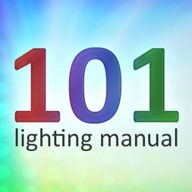mborg10
Michael Borg
Apart from becoming an apprentice and becoming a full blown electrician. Does anyone know of or has done a short course to assist in this hobby.
Follow along with the video below to see how to install our site as a web app on your home screen.
Note: This feature may not be available in some browsers.

Christmas @ the Myrtle (Damicka10) said:Apart from becoming an apprentice and becoming a full blown electrician. Does anyone know of or has done a short course to assist in this hobby.
Christmas @ the Myrtle (Damicka10) said:Apart from becoming an apprentice and becoming a full blown electrician. Does anyone know of or has done a short course to assist in this hobby.
arw01 said:Christmas @ the Myrtle (Damicka10) said:Apart from becoming an apprentice and becoming a full blown electrician. Does anyone know of or has done a short course to assist in this hobby.
Unless you want to design your own hardware, I just ask questions until I get it explained in dumb dumb terms and understand it.
I can assemble kits others have come up with, without any knowledge of why the parts are there.
Christmas @ the Myrtle (Damicka10) said:arw01 said:Christmas @ the Myrtle (Damicka10) said:Apart from becoming an apprentice and becoming a full blown electrician. Does anyone know of or has done a short course to assist in this hobby.
Unless you want to design your own hardware, I just ask questions until I get it explained in dumb dumb terms and understand it.
I can assemble kits others have come up with, without any knowledge of why the parts are there.
I was more looking at the 240v which is illegal to play with unless your licensed.
Christmas @ the Myrtle (Damicka10) said:Yeah I had a look at one which lets you add power cords to 240v single phase appliances legally to Australian standards. Don't know about the cost but it was 38 hours.
ԆцряєсϮ said:Just to add to Ed's advice above,
Don't get confused by the term "Low Voltage"
Low Voltage in Australia means any voltage between 50V - 1000V AC or 120V - 1500V DC
for this you need to be licenced.